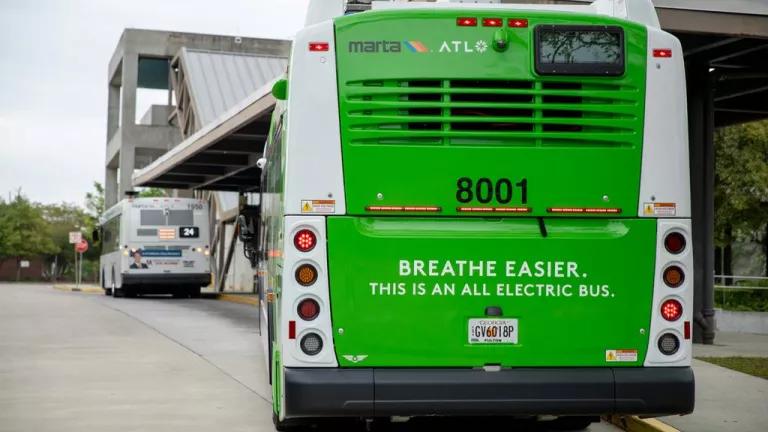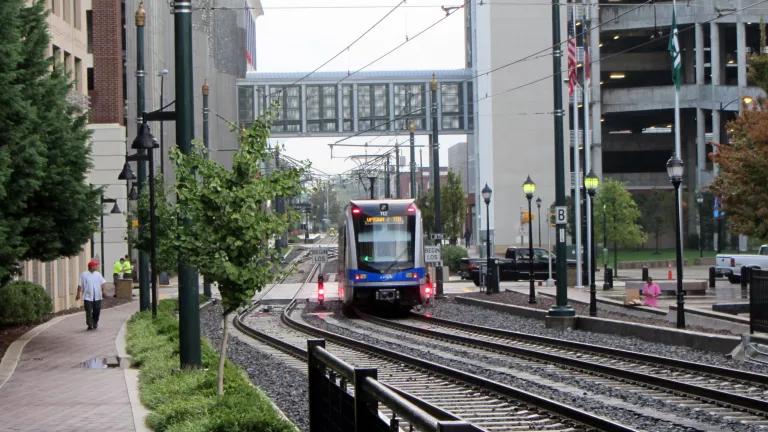Two Cheers for North Carolina’s Electric Vehicles Program
Based on the current state of the EV market in North Carolina, the state needs to ramp up investments and support for transportation electrification.

An Electric Vehicle Charging
After an extended review, the North Carolina Utility Commission released an order on Duke Energy’s proposed electric vehicle pilot program. This order is a positive, albeit relatively small, step for the Tar Heel state toward its climate goals.
The approved $26 million EV pilot program will help to install 240 public and multi-unit dwelling charging stations. The program will also support electric school buses and use the batteries to help support the electric grid.
But, the commission declined to approve portions of the program that would have installed more than 2,300 charging stations in North Carolina, support additional electric trucks and transit buses, and provide incentives for customers to charge during overnight hours, which would help support the electric grid.
Based on the current state of the EV market in North Carolina, the state needs to ramp up investments and support for transportation electrification. While the order is a welcomed step, much more remains to be done in order to ensure North Carolina can be a significant player in this new market and capture some of the jobs and economic growth it would bring.
As of August 2020, North Carolina had just under 22,000 EVs on the road—only a fourth of the way to achieving the states 80,000 by 2025 EV goal. Further, earlier this year North Carolina signed onto a multi-state memorandum of understanding that set a goal of 35% bus and trucks sales being electric by 2030.
These ambitious goals, which are needed to improve air quality and curb carbon pollution, will not be achieved by one entity—or one pilot program—alone and instead require a comprehensive approach that includes investments from private industry, public entities, and utilities.
How to continue to build momentum
Luckily, additional programs are on the horizon as the commission asked Duke and other parties to initiate a discussion within thirty days about the additional programs and policies that would spur electric transportation in North Carolina. This stakeholder discussion is to deliver a set of recommendations to the Commission in six months and must answer specific questions on rate design, equity and cost effectiveness.
Still, the state needs to look beyond pilot programs that have already been proven in other jurisdictions and propose full-scale programs to meet the state’s needs. These utility programs should support and encourage additional investments in charging infrastructure by the private market—such as through make-ready programs—as well as increasing access to clean transportation in communities overburdened by transportation pollution.
In addition to supporting infrastructure, North Carolina also needs to implement other policies and programs to help support and grow the EV market in the state. This includes expanding customer choice and the availability of EVs and electric trucks and buses. To do this, the state should adopt the Zero-Emission Vehicle (ZEV) regulations and the Advanced Clean Truck (ACT) rule, which will make North Carolina one of the first states to get new models of EVs and electric trucks and buses as well as send the vehicle market a signal that the state is committed to expanding and supporting the EV market.
North Carolina is on the right path: It’s just time for its leaders to move at a pace that matches the scale and scope of the challenge.




